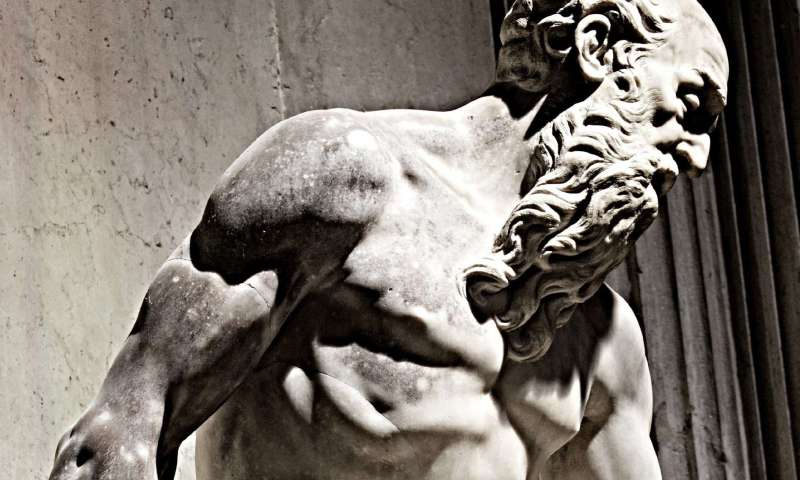He was the teacher of Epictetus, one of the fathers of Stoicism: Who is Gaius Musonius Rufus?
Gaius Musonius Rufus was a Roman Stoic philosopher who lived in the 1st century AD. He is one of the four great Stoic philosophers of the Roman empire, along with Seneca, Epictetus, and Marcus Aurelius.

Musonius, known as a great Stoic teacher, emphasized that he thought of philosophy as nothing other than the practice of noble behavior. He defended the commitment to live for virtue and not for pleasure, as virtue saves people from life-destroying mistakes. “Although philosophy is more difficult than other subjects, it is more important; because it corrects errors in thinking.” He also argued that simple personal habits, including a simple diet and inexpensive clothes and shoes, were necessary to achieve a good and solid life in accordance with the principles of Stoicism.
He believed that philosophy should be studied not to increase clarity of argument or to develop excessive intelligence, but to develop good character, a sound mind, and a healthy body. Musonius shunned all luxuries and disapproved of sexual activity outside of marriage. He emphasized the importance of an orderly life and family. He said that women should study philosophy because he thought that the virtues were the same for both sexes. Since Stoic Orthodoxy accepts concepts such as death, injury, pain, poverty, or exile as fate, it argues that these are not things to be afraid of.
Gaius Musonius Rufus was a Roman Stoic philosopher of the 1st century AD. He taught philosophy in Rome during the reign of Nero and so was sent into exile in 65 AD, returning to Rome only under Galba. He was allowed to stay in Rome when Vespasian banished all other philosophers from the city in 71 AD although he was eventually banished anyway, returning only after Vespasian's death. A collection of extracts from his lectures still survives. He is also remembered for being the teacher of Epictetus and Dio Chrysostom.
The Latin philosopher tried to develop Stoicism and advocated that philosophy should aim at virtue. He was born in Vulsinium (Etruria) around AD 20 and died in Rome during the reign of Titus (79-81). He began to deal with philosophy at a very young age, and upon the order of Nero, he was employed as a hard laborer in the construction of the Roman walls. He was expelled from Rome for a while but returned when Nero died. He supported Vitellus against Vespasian in an uprising, and when the angry Dometianus seized power and exiled him from Rome for the second time, he went to Syria. He returned to Rome during the reign of Titus.
Musonius wanted to reinterpret the moral understanding of the Stoic doctrine and make it the basis of philosophy. According to him, philosophy is a science that creates a rule of life and guides human behavior. What is important for a person is not to think in terms of some abstract concepts but to live. For this reason, philosophy is a moral doctrine that focuses on virtue. His main duty is to teach people to be content with little, to act in moderation, to get rid of the influence of passions, to respect people, to love them, and to be virtuous. In terms of thought, all people are anxious and unhealthy. Philosophy will enlighten them, save them from anxiety, and restore them to health. To achieve these, it is necessary to adopt virtue as a life principle.
Virtue is achieved not by knowing or learning, but by wanting. It is necessary to desire virtue, be moderate in all actions and behaviors, and be guided by an attitude that stems from respect and love. Because being virtuous is the only principle that brings happiness to a person. According to Musonius, marriage is in accordance with nature and is inevitable for the future, integrity, and health of society. The family institution is the founding element of humanity, its collapse leads to the collapse of humanity. A person should only eat food made from plants and stop shedding blood and eating meat. A virtuous person is benevolent, and good, and avoids killing other living creatures for food.
----------------------------
Who is Gaius Musonius Rufus? Getting to Know "The Roman Socrates"
https://dailystoic.com/musonius-rufus/
